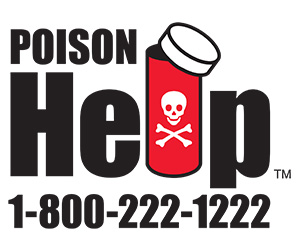Estudio aclara los problemas cardíacos causados por el tipo de tratamiento contra el cáncer

Estudio aclara los problemas cardíacos causados por el tipo de tratamiento contra el cáncer
Los inhibidores de puntos de control inmunitario, que tratan varios tipos de cáncer protegiendo el sistema inmunitario para que pueda atacar las células tumorales, a veces causan problemas cardiovasculares graves. Cuánto riesgo representan los medicamentos para el corazón no se entendía bien hasta hace poco, cuando un hematólogo-oncólogo del Centro de Cáncer Stephenson de la Universidad de Oklahoma publicó un estudio que arrojaba luz sobre el tema.
Abdul Rafeh Naqash, MD, fue uno de los autores principales del estudio, que fue publicado en el Journal of Clinical Oncology. La investigación confirmó que los problemas cardiovasculares relacionados con el uso de inhibidores de puntos de control inmunitario son bastante raros: el 0,6% (40 pacientes) en la población de estudio de casi 7.000 pacientes experimentaron un "evento adverso cardíaco importante". Entre esos 40 pacientes, la miocarditis (inflamación del músculo cardíaco) fue la más común. La mayoría de los pacientes que fueron diagnosticados con miocarditis desarrollaron la afección dentro de los 35 días de recibir una combinación de dos inhibidores de puntos de control inmunitario diferentes.
El estudio proporcionó más información sobre los pacientes que desarrollaron miocarditis. Un total del 65% de esos pacientes también experimentaron problemas en órganos distintos del corazón. Entre los pacientes que fueron diagnosticados con miocarditis, el 22.2% murió, y todos esos pacientes también tuvieron miositis, que causa inflamación en los músculos. Ese hallazgo sugiere que los pacientes con miositis tienen un riesgo especialmente alto de complicaciones mientras toman inhibidores de puntos de control inmunitario.
"Una de las cosas más importantes que estábamos tratando de hacer con este estudio era crear una conciencia entre los médicos y los pacientes sobre cómo pueden presentarse estas afecciones.
Es importante que estos pacientes reciban atención multidisciplinaria de oncólogos, cardiólogos, internistas y otros especialistas, y que los pacientes comiencen temprano con esteroides y reciban un manejo agresivo. También queríamos crear conciencia entre los médicos de emergencias, que podrían ser los primeros en ver a un paciente que desarrolla problemas cardiacos mientras toma un inhibidor de puntos de control inmunitario", dijo Naqash, quien también es profesor asistente de hematología / oncología en la Facultad de Medicina de la OU en el Centro de Ciencias de la Salud de la OU.
El estudio se realizó utilizando datos de pacientes de 107 estudios clínicos diferentes patrocinados por el Programa de Evaluación de la Terapia del Cáncer del Instituto Nacional del Cáncer (NCI-CTEP). Naqash comenzó el estudio mientras trabajaba como becario en el Instituto Nacional del Cáncer, y lo continuó una vez que se unió al Stephenson Cancer Center. El principal colaborador de Naqash en el estudio fue el investigador principal Elad Sharon, M.D., MPH, del NCI-CTEP. Naqash también presentó sus hallazgos a principios de este año en una reunión de la Sociedad Americana de Oncología Clínica.
ENGLISH
Study Sheds Light on Cardiac Problems Caused by Type of Cancer Treatment
OKLAHOMA CITY — Immune checkpoint inhibitors, which treat a number of cancers by protecting the immune system so it can attack tumor cells, sometimes cause serious cardiovascular problems. Just how much of a risk the drugs pose to the heart was not well understood until recently, when a hematologist-oncologist at the OU Health Stephenson Cancer Center at the University of Oklahoma Health Sciences Center published a study shedding light on the issue.
Abdul Rafeh Naqash, M.D., was a lead author for the study, which was published in the Journal of Clinical Oncology. The research confirmed that cardiovascular problems connected with the use of immune checkpoint inhibitors are quite rare — 0.6% (40 patients) in the study population of nearly 7,000 patients experienced a “major cardiac adverse event.” Among those 40 patients, myocarditis (inflammation of the heart muscle) was the most common. Most patients who were diagnosed with myocarditis developed the condition within 35 days of receiving a combination of two different immune checkpoint inhibitors.
The study provided further insight into the patients who developed myocarditis. A total of 65% of those patients also experienced problems in organs other than the heart. Among the patients who were diagnosed with myocarditis, 22.2% died, and all of those patients also had myositis, which causes inflammation in the muscles. That finding suggests patients with myositis are at especially high risk for complications while taking immune checkpoint inhibitors.
“One of the most important things we were trying to do with this study was to create an awareness among both clinicians and patients about how these conditions can present. It’s important that these patients receive multidisciplinary care from oncologists, cardiologists, internists and other specialists, and that patients are started early on steroids and receive aggressive management. We also wanted to raise awareness among ER physicians, who may be the first to see a patient who develops cardiac problems while taking an immune checkpoint inhibitor,” said Naqash, who is also an assistant professor of hematology/oncology in the OU College of Medicine at the OU Health Sciences Center.
The study was conducted using patient data from 107 different clinical trials sponsored by the National Cancer Institute Cancer Therapy Evaluation Program (NCI-CTEP). Naqash began the study while he was working as a fellow at the National Cancer Institute, and he continued it once he joined Stephenson Cancer Center. Naqash’s primary collaborator on the study was senior investigator Elad Sharon, M.D., MPH, of NCI-CTEP. Naqash also presented their findings earlier this year at a meeting of the American Society of Clinical Oncology.
Comentar
Los campos obligatorios estan marcados con *
1 Comentarios
-
jollina DAVID
28 October 2022 21:08I came across so many reviews about PARAGON CREDIT SOLUTION for the great job they are doing. And I really need a good hacking company to help Me and my husband fix our credit. 4 years ago we messed up our credit report due to low income. I contacted them on their email address , and they asked us for the necessary information and promised to get a job within a maximum of 6 days. To our greatest surprise in less than 5 working days they remove all negative items and also raise our credit score to 806 across board. You can contact them on paragoncreditsolution@gmail.com . They are the best hacking company I have come across.


















































Comentar con Facebook